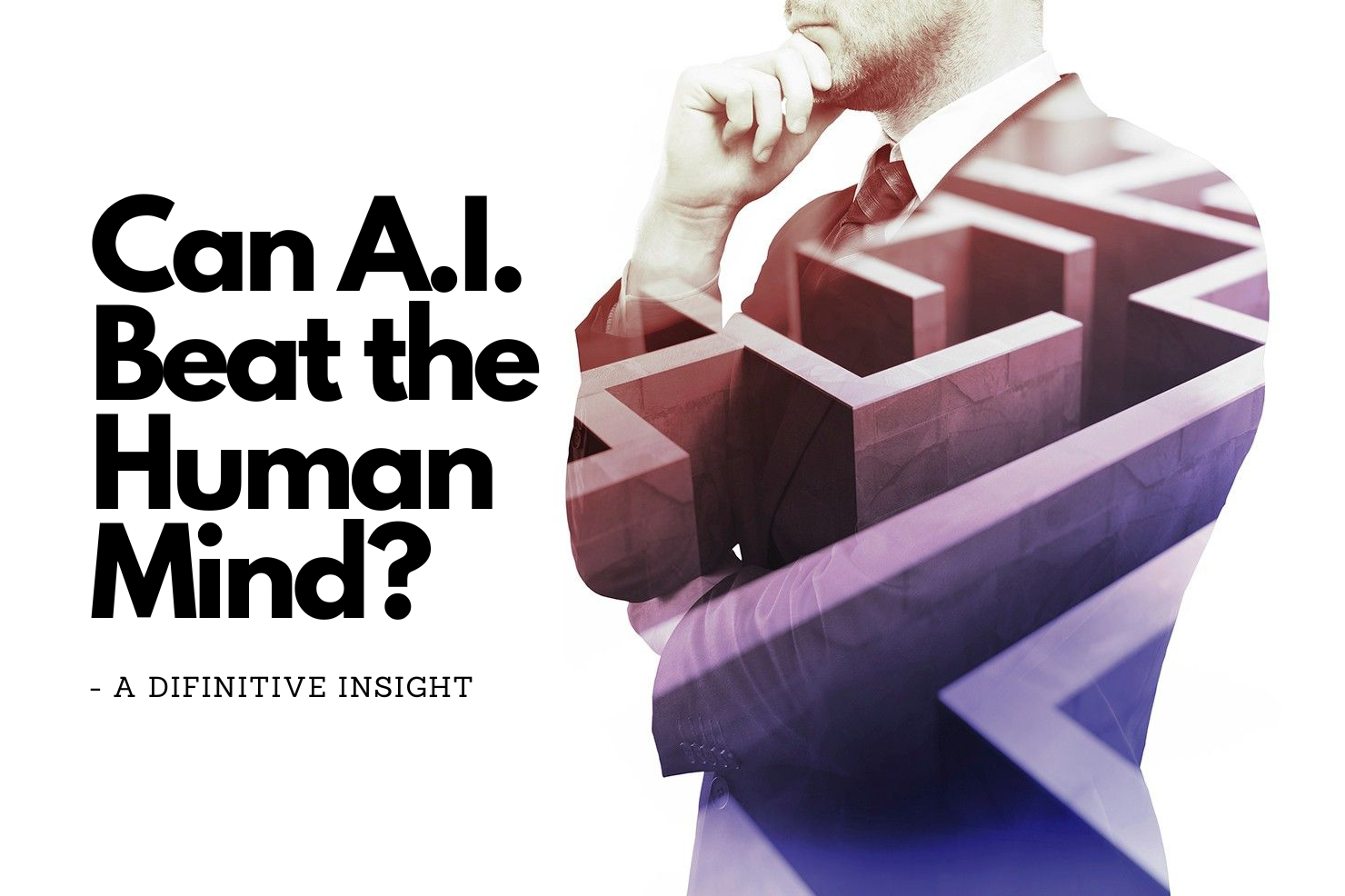Can Artificial Intelligence Beat the Human Mind

Table of Contents
Computers were invented to simplify our lives, starting with solving mathematical equations and reducing human error. Over time, this evolved into something more fascinating and complex, with the term “artificial intelligence” coined by John McCarthy in 1956 rapidly taking shape.
The desire to combine organic beings with functioning machines has grown through the decades, yet one question has baffled both exceptional thinkers and average people: will artificial intelligence beat the human mind?
Many theorists and science fiction fans can easily answer this question with a yes or no. When the movie The Terminator was released in 1984, some may have believed that robots could never be that advanced. When Steven Spielberg’s movie A.I. was released, some people may have accepted the possibility of artificial intelligence becoming a part of their daily lives.
With endless possibilities for those who devote time to perfecting their craft, what was once fictional may soon become a reality. Or will it remain an illusion of reality?
Breakthroughs in Artificial Intelligence
The application of artificial intelligence in our daily lives has been increasing exponentially, with over 80% of the world’s population having access to A.I. through their smartphones. Siri and Alexa, for instance, are developed with an algorithm known as “context-free grammar,” which is part of various computer programming languages.
Other A.I. applications focus on a more visual approach, such as Dall-E 2, which can create realistic art based on a provided text description. Self-driving cars from Tesla use multifocal sensors that claim to surpass human reaction and visibility. Or even the newer development like Chat GPT that claimed to achieve literary creativity.
Innovators are gradually incorporating sensory functions into A.I., providing them with vision, hearing, smell, taste, and of course logic.
Graphcore, a British chip designer, intends to build a supercomputer that will dwarf your average laptop. If your computer can process 100 billion calculations per second, this supercomputer achieves the same tasks 100 million times faster. Imagine what A.I. can do with that processing power.
Benefits of Artificial intelligence
To understand how A.I. can be beneficial for our daily routine, we must first understand the three main types of artificial intelligence:
- Weak AI: This is commonly present in our daily lives. This type of AI can perform one task at a time and is unable to perform beyond its limitations.
- Strong AI: Can understand, learn, and perform intellectual tasks that humans can. (Still in concept and is continuously being worked on by researchers)
- Super AI: Theoretically surpasses human intelligence and can outperform any human being.
From the three types, we stand between Weak AI and Strong AI. Businesses harness the power of A.I. to promote accessibility to clients and improve the overall customer experience. Some benefits that we can experience are the following:
24×7 Availability
Humans have limitations and can usually work between 6 to 8 hours a day to balance work and personal life. With machine learning and enough data, customer service can be automated 24 hours a day nonstop using artificial intelligence.
Reduce Human Error
One great advantage of A.I. is its capability to reduce human error. When programmed properly, one can eradicate any possibility of human error depending on how simple or complex that task may be.
Accessibility
Artificial intelligence can be used daily to increase accessibility to those who need it. For example, people with poor eyesight can use A.I. to assist them in reading. For recreational purposes, A.I. can even play your favorite music with your instructions via voice command.
Perform Repetitive Tasks
Imagine if you could free yourself from repetitive tasks and focus on things that matter the most. A.I. can be programmed to an extent where repetitive tasks are fully automated based on set parameters.
Physically Risk-Free
If you are a fan of the movie mentioned earlier, you probably won’t agree that integrating robotics with artificial intelligence would be risk-free. Setting fiction aside, creating a robot with artificial intelligence to take on dangerous tasks can be helpful for exploration and finding more about the unknown.
Exploring the deepest depths of the Ocean, visiting different planets, or even collecting specimens in a radioactive environment might save people from worrying about the consequences.
Can Artificial Intelligence Beat the Human Mind

Even with the breakthroughs in technology, it is still arguable whether A.I. can outperform the human mind. Computers have predictable hardware specifications and processing power. Yet, the human brain remains an immeasurable enigma.
If we give artificial intelligence the same processing power as the human brain, it still won’t have the ability to make choices like you do because it lacks free will. Our power lies in our capacity to make unpredictable decisions, cultivate curiosity, and seize opportunities with boldness.
By definition, free will means acting without constraint, it is the ability to decide and choose our next course of action; it is a vital catalyst that propels us to innovate and yearn for improvement.
Free will is what sets human beings apart from machines. While we may strive to replicate the human mind through technology, it’s important to remember that programming lacks the element of unpredictability and curiosity that makes us truly powerful. In essence, the concept of free will and algorithms are like oil and water – they don’t mix.
If you do not wish to gamble the future of your website’s search ranking by using A.I., feel free to check out my services. Enjoy peace of mind knowing that your articles are 100% free from plagiarism.